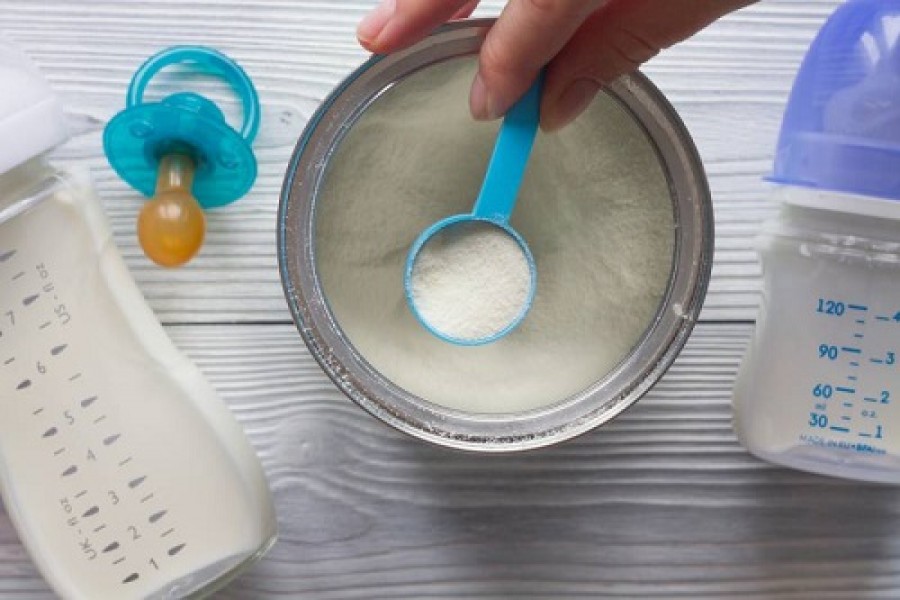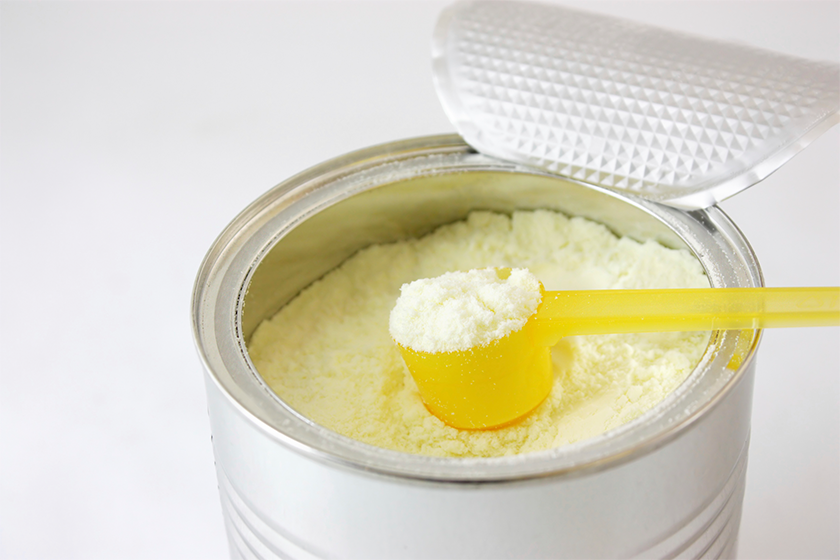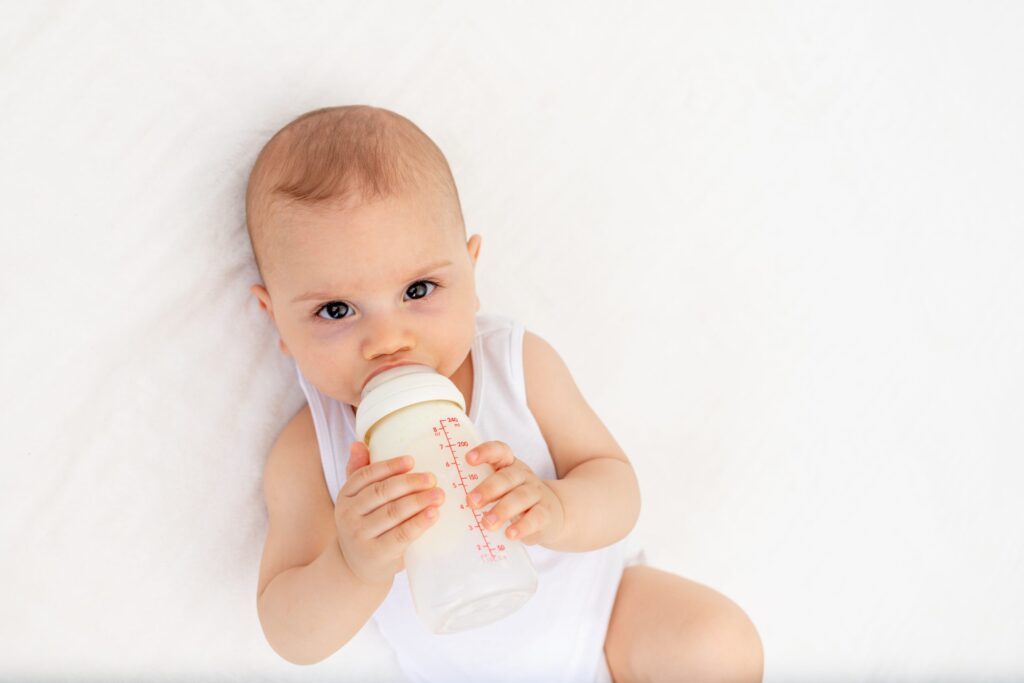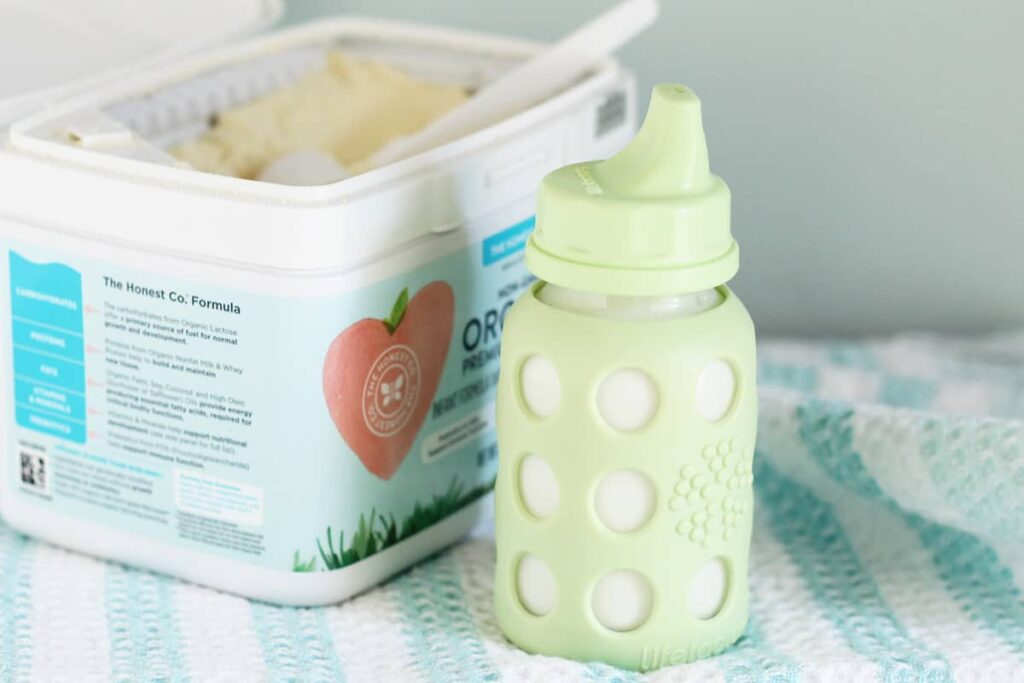Breast milk is the best source of nutrition for babies in their first year of life. Unfortunately, for a variety of reasons, sometimes it is not possible to breastfeed a baby at all. This is where parents may need to use formula continuously or give it in addition to breast milk.
The best formula for your baby is the one that your pediatrician recommends, and your baby digests well. The good news is that all formulas are strictly regulated and must meet the essential nutritional requirements.
Types of baby formula
1. Cow’s milk-based formula

About 80% of the formula sold is based on cow’s milk protein. The proteins are specially processed so that your baby’s digestive system can easily break them down and absorb them. Pediatricians recommend formulas fortified with iron for the prevention of iron deficiency anemia in children under one year of age. Some of these formulas also contain essential DHA and ARA fatty acids for brain and vision development.
2. Soy-based formula

Pediatricians believe that it is unnecessary to use these formulas except in two situations: lactase deficiency and situations where a vegetarian diet is preferable. Parents should understand that soy products should not be given to children younger than six months with food allergies, including the soy-based formula for premature infants.
3. Lactose-free formula

This type of baby formula is suitable for babies with varying degrees of lactose allergy or lactose deficiency.
4. Hypoallergenic formula

HA formula contains protein that has undergone special stages of breakdown into enzymes. It is easier for the baby’s body to digest. The composition of such formulas is balanced and contains the necessary nutrients. Manufacturers always try to make the composition of their product close to breast milk for better digestibility of the baby.
5. Anti-reflux formula

Newborn regurgitation is a common symptom. Reflux can be considered a physiological phenomenon if it is not accompanied by insufficient weight gain. Nevertheless, it is a frequent cause of concern for parents and the recommendation by pediatricians of anti-reflux formula. These formulas have been scientifically proven to reduce daily episodes of regurgitation and vomiting.
6. Baby formula age range

One of the main factors to consider when choosing formula is the baby’s age. After all, for each age group, the need for nutrients is different.
Baby formula markers:
- “0”, “pre” – for newborn, premature babies;
- “1” – from birth to six months;
- “2” – from six months to one year;
- “3” – for babies over one year old.
The use of preservatives and colorings is strictly prohibited in the production of baby food. It is impossible to find such ingredients in baby formula from a reliable brand. For example, the HIPP formula contains only organic ingredients that are carefully processed.
Before you start feeding your baby a new formula, you should note digestive problems and how the baby is feeling. Usually, it takes two to three days to get used to a new formula. If the baby is uncomfortable even after this period, it mostly means that the formula is not suitable for the baby.



